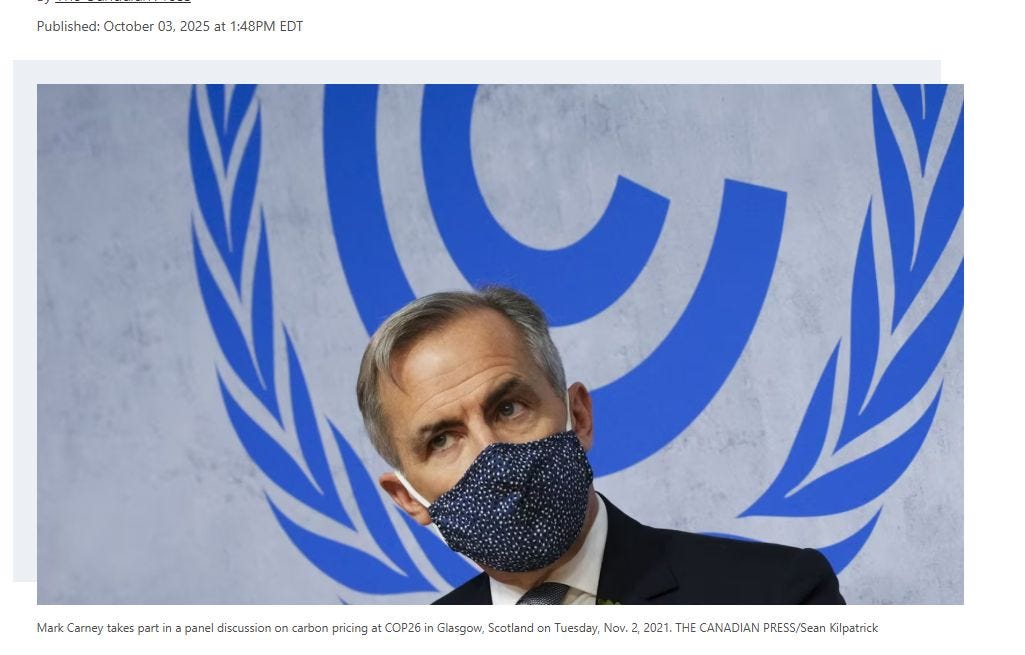The Fall of the Net-Zero Banking Alliance: What Comes Next for Climate Finance?
By KICLEI Contributor | October 2025
In what may mark the quiet end of an era in international climate finance, the UN-backed Net-Zero Banking Alliance (NZBA) officially voted on October 3, 2025, to cease operations and dissolve its membership-based structure. Initially launched by former Bank of England Governor and UN Special Envoy Mark Carney in 2021, the NZBA was once heralded as a cornerstone of the global push to align private finance with the goals of the Paris Agreement.
But just four years later, the high-profile coalition has unraveled—abandoned by its largest and most powerful members, and increasingly questioned by stakeholders across the political and financial spectrum.
What Was the NZBA?
Formed under the Glasgow Financial Alliance for Net Zero (GFANZ) umbrella, the NZBA invited the world’s biggest banks to pledge that their lending and investment portfolios would align with net-zero emissions by 2050. It was a voluntary framework, but carried significant regulatory and reputational weight. The Alliance quickly grew in influence, tying in with ESG (Environmental, Social, and Governance) investment criteria and global carbon disclosure standards.
In theory, it was an innovative attempt to marry climate goals with market mechanics.
In practice, it ran aground on the rocks of democratic consent, economic realism, and shareholder backlash.
Massive Withdrawals in 2024–2025
Beginning in late 2024, the NZBA began hemorrhaging members—first in the United States, then Canada, and finally Europe:
JPMorgan Chase, Citigroup, Goldman Sachs, Morgan Stanley, Bank of America, and Wells Fargo all withdrew under growing political and shareholder scrutiny.
By January 2025, Canada’s “Big Six” banks—RBC, TD, Scotiabank, BMO, CIBC, and National Bank—had also left the alliance.
HSBC, once a vocal proponent, exited in July 2025, signaling the unraveling was complete.
The exodus reflected increasing discomfort with top-down frameworks that, according to critics, threatened national sovereignty, investor autonomy, and traditional industries—especially in energy-producing nations like Canada.
An Alliance That Outran Its Mandate?
The NZBA’s closure is more than bureaucratic. It is a watershed moment, illustrating the limits of global governance without public accountability.
When financial institutions—tasked with risk management, fiduciary duty, and economic development—are instead pressured into aligning with UN climate goals, the question becomes: Whose priorities are they really serving?
The retreat of major banks suggests they no longer believe net-zero commitments are financially sustainable—or publicly defensible.
Mark Carney’s Credibility in Question
At the heart of the NZBA’s rise and fall is Mark Carney—long considered a darling of global finance and climate policy.
A former central banker turned climate czar, Carney has occupied pivotal roles in the UN, Bank of England, Bank of Canada, Brookfield Asset Management, and now the Canadian Prime Minister’s Office. His global reputation was built on the very frameworks that the world’s largest banks just walked away from.
Now, with the collapse of NZBA, Canadians are right to ask:
What does it say that Carney’s climate frameworks are being rejected by the very institutions he once led?
More importantly, can Canadians rely on a Prime Minister who has spent his career serving global institutions—not local economic interests?
Wealth, Transparency, and Influence
Public records ahead of the 2025 election placed Carney’s wealth at an estimated $6 million CAD—a fraction of his peers in global finance and governance. By comparison:
Larry Fink (BlackRock): US $1.2 billion
Jamie Dimon (JPMorgan Chase): US $2.5 billion
Christine Lagarde (ECB): US $20 million
Janet Yellen (US Treasury): US $20 million
Michael Bloomberg (Co-Chair GFANZ): US $96 billion
Whether this contrast is evidence of humility, obfuscation, or something else entirely remains unclear. But the discrepancy has raised eyebrows about what Canadians are allowed to know about their leader’s true financial interests.
What Comes Next?
With the NZBA gone, global green finance faces a vacuum. New frameworks may emerge, but public skepticism is growing. Around the world—and especially in Canada—citizens are asking harder questions:
Who authorized these climate commitments?
Who benefits from ESG scoring and carbon disclosure mandates?
What are the real costs to jobs, exports, and national industries?
More importantly, will citizens or elites decide the future of economic strategy?




What a ray of shineshine for a Tuesday morning! Thank you for the detailed explanation, along with the global ramifications of this watershed event.
this is great news! cut the funding, cut the programs